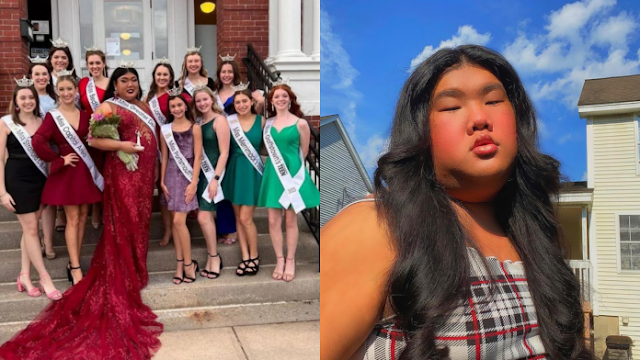Heroic housewives — India's unlikely pageant event
"In your opinion," a judge asked, "what is the merit of being a housewife?".
"She is a resource manager," announced Nisha Sharma, 37. "What she can manage with the limited resources given to her, how she runs a house, and how she hides the lapses in finances and makes do with what she has to present a brave face for her family to society, that is the merit of being a housewife."
The competition for India's first Housewives Award was understated but steeped in all things to do with home. Twelve women were singled out of an initial list of 100 women in a competition that aimed to underscore the importance of the role of housewife.
Mrs Sharma's answer did not win her the title nor the Tata Nano car, better known as the world's cheapest car, that went with first prize. The title went instead to Jyoti Nagpal, 35, from Punjab.
But Mrs Sharma, who came in second place, all but embodied the spirit of the pageant.
The Housewives Award honours the contributions of homemakers, often overlooked by society and dismissed for doing "nothing", said Varsha Goel, founder and president of Attitudinal Awareness in the Society, a non-profit organisation that works to change perceptions about women in India.
Mrs Goel teamed up with Dilbar Gothi, the metro editor of Nav Bharat Times, a Hindi-language daily based in Mumbai, to establish the award. They created an entry form with 100 questions and then urged housewives to apply.
"Who says she does nothing?" said Mr Gothi. "This event was created so children will never say their mothers are just housewives, that they do nothing."
A study by his newspaper estimated that on average, an Indian housewife's work is worth 40,000 rupees (Dh2,672) a month.
"Why start this award? A woman manages a house, she gives unconditional love to everyone around her and if you got someone else to do even half the work she did, you would have to pay her," said Mrs Goel.
"Housewives demand more respect."
More than 100 applicants were interviewed before the finals in New Delhi.
What probably won the crown for Mrs Nagpal was her answer to a question in Saturday's first round.
"What if your son brings home a cabaret dancer, and says, 'I have married her'?," the judges asked.
Mrs Nagpal replied: "No girl ever wants to be a cabaret dancer for her whole life. I would tell her, forget your old life. Now you live with us, according to my son's family values."
The crowd of more than 1,000 burst into applause.
Upon winning the award, a surprised Mrs Nagpal said: "I was so nervous that I said the first thing that came to mind."
Almost 10 years ago, Mrs Goel's sons, then 4 and 5 years old, also said the first thing that came to mind when asked by a teacher what their mother did.
"They said: Nothing. She is just a housewife," Mrs Goel recalled.
"My wife realised that even though she does so many things, she is not recognised. This award show is an answer to that question," said Mrs Goel's husband, Virendra Kumar Goel.
Seema Sharma, 34, from Delhi, said simply entering the contest had a positive effect. "Ever since I entered this contest, I see a different, new kind of respect in the eyes of my children," she said. "I used to look at my mother and think what an old-fashioned idea it is to be a housewife. "Now I can show society what I have been doing behind closed doors for so many years."
Mrs Sharma, who finished third in the Housewives Award contest and married at the age of 20, said she was surprised that she told the judges she would put her health concerns first before family members, so that she would be better able to take care of them.
It was tradition in India, but rarely admitted to by modern Indian housewives, that they must put their children and husband before themselves. Often they will refrain from eating until everyone has had their fill, then the women will eat what is left.
Sandhya Chaurasia, from Bareilly in Uttar Pradesh and who would only say that she was "47 plus", reflected on her decision to marry a man who is visually impaired, and who works as an interpreter at Delhi's international airport.
She met and married her husband in 1990, after answering an advertisement in the matrimonial classified section of a newspaper.
"There was a lot of opposition from my relatives," she said. "I initially wanted to be a teacher but I met him and I always wanted to marry for love and knew he would love me like no other."
She said she is often "talked down to" when she tells people: "I don't have a job."
"Their tone changes. They judge me."
SOURCE: The National, India, 5/22/2012



Comments
Post a Comment